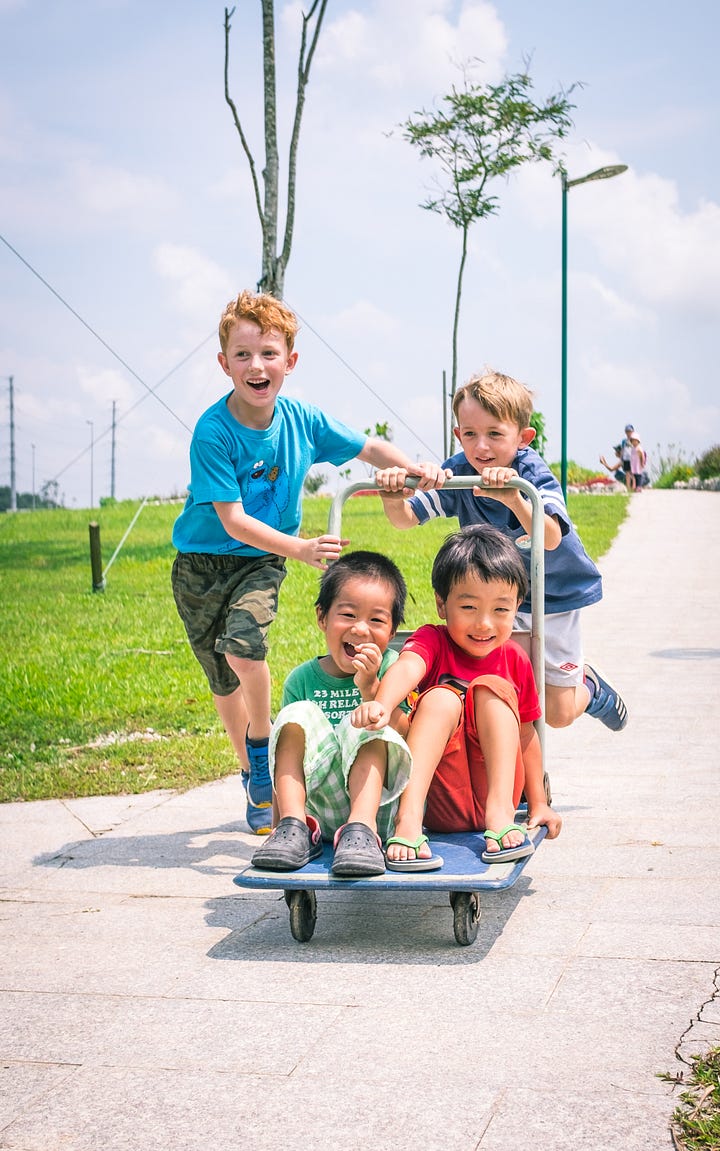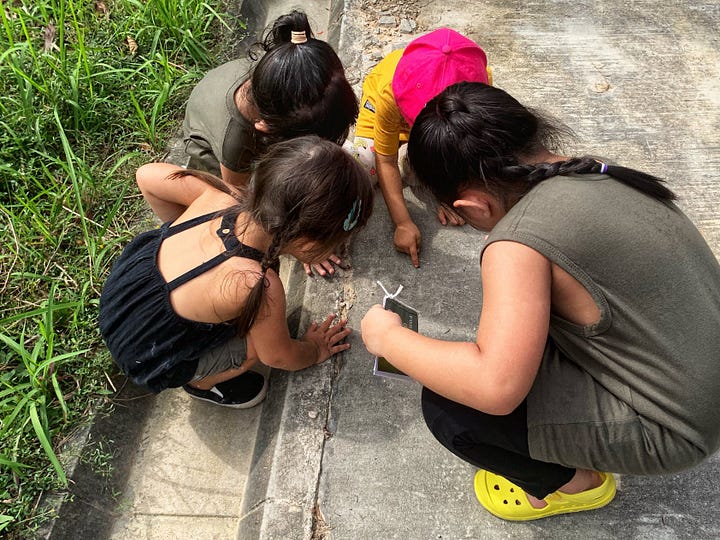Child's Play
A Growing Deficit


"In school, and in other settings where adults are in charge, they make decisions for children and solve children’s problems. In play, children make their own decisions and solve their own problems. In adult-directed settings, children are weak and vulnerable. In play, they are strong and powerful. The play world is the child’s practice world for being an adult. We think of play as childish, but to the child, play is the experience of being like an adult: being self-controlled and responsible. To the degree that we take away play, we deprive children of the ability to practise adulthood, and we create people who will go through life with a sense of dependence and victimisation, a sense that there is some authority out there who is supposed to tell them what to do and solve their problems." Peter Gray
Peter Gray is an evolutionary biologist whose research focusses on children’s learning and children’s development. His 2013 book Free to Learn informs an article he wrote The play deficit which I happened to read, highlighted the contrast I was seeing in Malaysia on my return in 2010, of children trapped in tuition centres in sharp contrast to the kind of childhood I enjoyed in the sixties playing outside unsupervised as he describes.
Recent local articles about after school tuition describe some of the concerns regarding the increasing incidence of children spending time in these situations:
"Why parents need tutors: To do the job of parents
Play matters, and when we starve children of it and instead have them trapped in adult directed environments devoid of the improvised, self determining, peer influenced activities they are more likely to create themselves, it leads to learning deficits that can impact the course their development into adulthood.
Mixed Groups
Empathy, the ability and tendency to see from another person’s point of view and experience what that person experiences is seeing a decline in children. A decline of empathy and a rise in narcissism are exactly what we would expect to see in children who have little opportunity to play socially especially in mixed age, race and gender goups that they might naturally find in their neighbourhoods.
In schools, children are usually sorted into same age and gender groups and can’t learn these social skills and values across mixed groups. Schools also foster competition, not co-operation; and children there are not free to quit when others fail to respect their needs and wishes. When I’ve done programs in schools another disturbing development is that children tend to group themselves along racial and religious lines often speaking exclusively in languages particular to those groups.
Mental Decline
Over the same decades that children’s play has been declining, childhood mental disorders have been increasing. There’s been an increase in anxiety and depression in young people over the decades, such that the rates of what today would be diagnosed as generalised anxiety disorder and major depression are five to eight times what they were in the 1950s. Over the same period, the suicide rate for young people aged 15 to 24 has more than doubled, and that for children under age 15 has quadrupled. This is now being exacerbated by the advent of social media.
A Creativity Crisis
While IQ has been increasing over the deacades creativity has not. Kyung Hee Kim, PhD under the supervision of Dr Ellis Paul Torrance, known as the ‘Father of Creativity’ and who created the famous Torrance Test for Creative Thinking, known as ‘the gold standard of creativity testing’ wrote: The Creativity Crisis: The Decrease in Creative Thinking Scores on the Torrance Tests of Creative Thinking detailing that, since the mid-90s imagination in the US has been in a ‘steady and persistent decline’, while IQ continued to rise.
In early childhood, distinct types of free play are associated with high creativity. In middle childhood, kids sometimes create paracosms-fantasies of entire alternative worlds-this type of play is a very strong sign of future creativity. A Michigan State University study of MacArthur "genius award" winners found a remarkably high rate of paracosm creation in their childhoods.
Climate Change and Social Injustice
With the combination of an increase in school time and their bias towards testing and academics, and less for play time, free time, exploration time and creativity it might not be so surprising that the problems of climate change and social injustice persist. If a response to climate change is a failure of the imagination and lack of empathy is contributing to a world of increasing social injustice and inequality, its urgent that we understand and take measures to place the importance of child’s play into a proper perspective to ensure that it doesn’t impact the future which is the world that these children will be living in.



